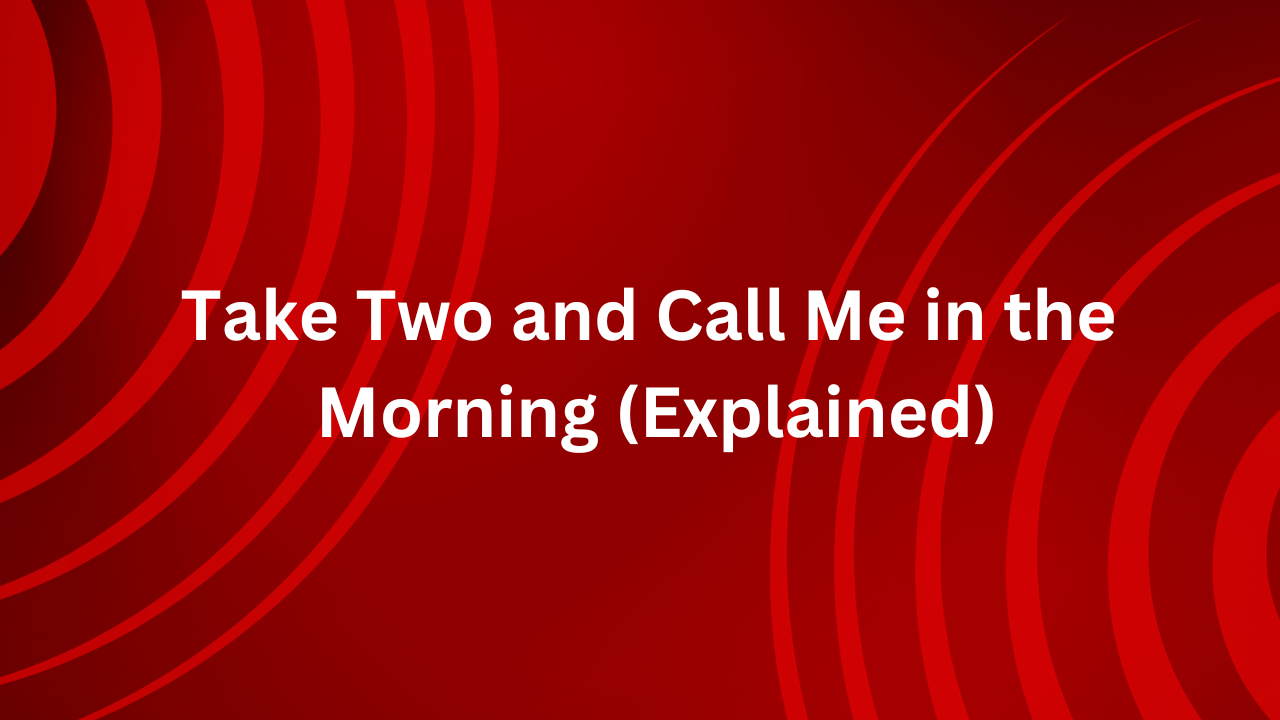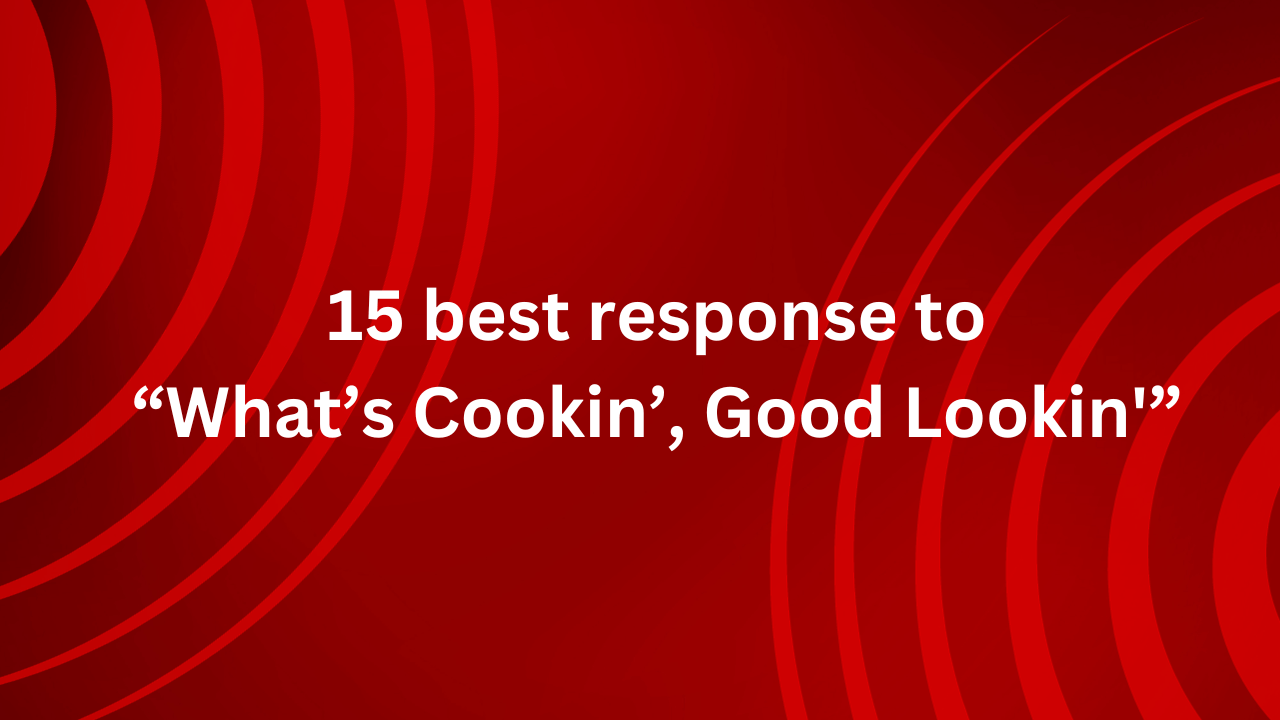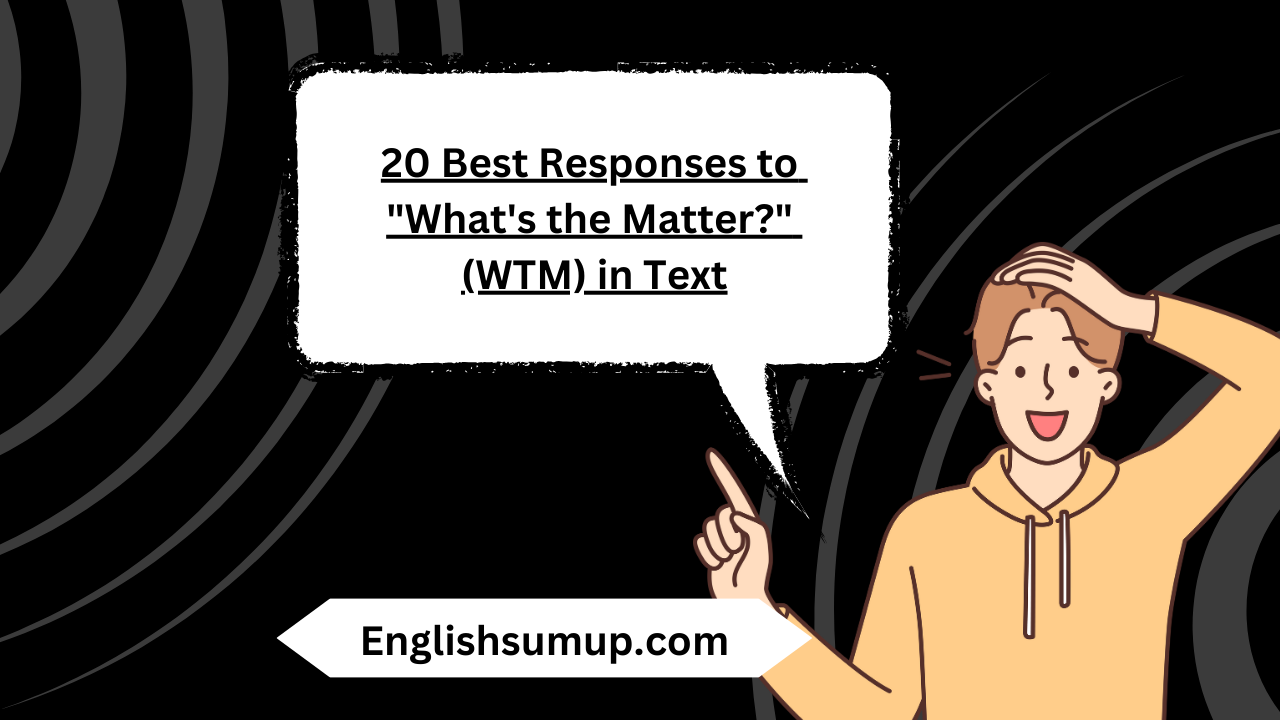Description of Take Two and Call Me in the Morning, In the vast realm of language, idioms often take on a deeper meaning than meets the eye.
One such expression that has become synonymous with self-care and minor illness management is “take two and call me in the morning.” This article delves deeper into the origin, meaning, proper usage, and broader implications of this commonly heard phrase.
The meaning behind “take two and call me in the morning”.
At its core, this phrase encapsulates a combination of self-reliance and medical advice. This concept revolves around the belief that not every health concern requires an immediate visit to the doctor.
Instead, individuals can take a simple remedy, often symbolized by “two aspirin,” and only reach out to their health care provider if the problem persists.
Original of “Take Two and Call Me in the Morning”.
Understanding the roots of this expression takes us back to a time when doctor-patient relationships were more personal and direct. Clinicians, who know their patients intimately, can confidently prescribe a straightforward solution,
confident that a follow-up call will be made when needed. This phrase dates back to an era when health care was often a more intimate and tailored experience.
Check this Post Also: 20 Amusing Instances Of Two Things Don’t Go Together
Incorporating phrases into everyday language
To operate this phrase effectively, one must understand its main application. Consider a sentence like, “I have a little headache, so I’ll take two and call me in the morning if it doesn’t get better.
” This usage seamlessly integrates the phrase into a statement of self-esteem, initially indicating a preference for self-care.
Different ways of conveying the same emotion
Language thrives on diversity, and expressing the same emotion in different ways expands communication. Alternatives such as “Try a couple and give me a ring tomorrow” or
“Take two pills and let me know if there’s any change in the morning” convey a similar message with a different linguistic mood. Adopting these alternatives demonstrates linguistic versatility and promotes clear communication.
Also In Our Guide: Visit Here
When and where to use the phrase
The flexibility of this phrase allows it to seamlessly integrate into many situations. Whether it’s a mild headache, a mild fever, or a common cold, “Take Two and Call Me in the Morning” indicates that the illness is manageable without immediate professional intervention.
It serves as a gentle reminder to assess the severity of symptoms and make a decision to seek medical attention.
Conditions to consider:
Mild aches and pains: For minor ailments such as headaches or muscle aches, where a simple remedy may be sufficient.
Common cold or flu-like symptoms: When symptoms are manageable and do not progress to severe illness.
Non-emergency digestive problems: Examples are mild indigestion or temporary digestive discomfort.
Circumstances for re-examination:
Persistent or worsening symptoms: If symptoms persist or worsen after following recommended treatment.
Acute or sudden onset of symptoms: In case of sudden and severe symptoms, immediate medical attention is advised.
Known allergies or underlying health conditions: Individuals with known allergies or underlying health conditions should exercise caution and consult a healthcare professional immediately.
Conclusion:
Finally, “Take Two and Call Me in the Morning” is more than just a recipe. It encapsulates a critical perspective on the evolving dynamics of healthcare.
Rooted in the historical context of personalized medicine, this phrase invites reflection on the changing nature of the doctor-patient relationship and the increasing role of self-care in contemporary healthcare practices.
As we navigate the complexities of modern medicine, this timeless adage serves as a poignant reminder of the delicate balance between self-reliance and the invaluable guidance of medical professionals.
FAQ’s:
What does “Take Two and Call Me in the Morning” really mean?
This phrase suggests that for minor health problems, individuals can take a simple remedy (symbolized as “two aspirin”) and only contact their health care provider if the problem persists. It emphasizes self-reliance balanced with professional medical guidance when needed.
Why is this phrase associated with “two aspirin”?
The association with “two aspirin” is symptomatic, representing a common and straightforward treatment for mild discomfort. This reflects a time when such over-the-counter solutions were prescribed before more extensive medical care was available.
How should I use this phrase in everyday language?
Incorporate it into your language when discussing minor ailments that you believe can be self-managed initially. For example, “I have a slight headache, so I’ll take two and call me in the morning if it persists.”
Are there alternative ways to convey the same message?
Of course! You can say, “Try a couple and give me a ring tomorrow” or “Take two pills and let me know if there’s any change in the morning.” The aim is to express ideas with linguistic diversity.
Under what circumstances should I reconsider and seek immediate medical attention?
If symptoms persist or worsen after following recommended treatment, if severe symptoms begin suddenly, or if you have known allergies or underlying health conditions, it is advised to seek immediate medical attention. But consult a healthcare professional.
Why is the historical context of this sentence important?
A: Understanding the historical roots highlights a time when the doctor-patient relationship was more personal. It provides insight into the origins of the phrase and the evolving dynamics of healthcare practices.










